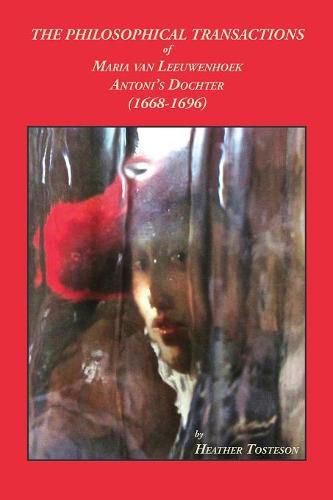Readings Newsletter
Become a Readings Member to make your shopping experience even easier.
Sign in or sign up for free!
You’re not far away from qualifying for FREE standard shipping within Australia
You’ve qualified for FREE standard shipping within Australia
The cart is loading…






This title is printed to order. This book may have been self-published. If so, we cannot guarantee the quality of the content. In the main most books will have gone through the editing process however some may not. We therefore suggest that you be aware of this before ordering this book. If in doubt check either the author or publisher’s details as we are unable to accept any returns unless they are faulty. Please contact us if you have any questions.
THE PHILOSOPHICAL TRANSACTIONS OF MARIA VAN LEEUWENHOEK, ANTONI'S DOCHTER (1668-1696): Including accounts of novel discoveries made in Delft that bear upon the oft vexing mysteries of sexual generation, particularly as they apply to the fate and purpose of women
In the 1670s in a small town in Holland, in a world constantly racked by fevers, plagues, wars, and an amazing rate of scientific discovery due to the development of the telescope and microscope, two astonishing and mutually contradictory discoveries are made: eggs in the ovaries of women, and animalcules in men's semen. For the learned men of the age, these eggs and animalcules quickly inspire new and competing theories about sexual generation, theories that reject the belief that life comes from putrefaction and insist instead that it comes preformed, life from life, from either an egg or an animalcule. But this is not the story of the learned gentlemen.
This is Maria van Leeuwenhoek's story and she tells us directly how her father Antoni, an unlearned but inspired amateur, a burger of Delft, discovers these animalcules, what happens to the two of them because of this--and how she, a daughter not a son, one with as much independence of mind as her father, must make her own sense of his discoveries and of the theories that flow from them because they directly concern her own fate and purpose as a woman. What experimental knowledge does she, as a woman, bring to these questions that men cannot? As a woman, as a daughter of marriageable age, where do her loyalty, her love, and her integrity lie? Who will carry her theories forward?
$9.00 standard shipping within Australia
FREE standard shipping within Australia for orders over $100.00
Express & International shipping calculated at checkout
This title is printed to order. This book may have been self-published. If so, we cannot guarantee the quality of the content. In the main most books will have gone through the editing process however some may not. We therefore suggest that you be aware of this before ordering this book. If in doubt check either the author or publisher’s details as we are unable to accept any returns unless they are faulty. Please contact us if you have any questions.
THE PHILOSOPHICAL TRANSACTIONS OF MARIA VAN LEEUWENHOEK, ANTONI'S DOCHTER (1668-1696): Including accounts of novel discoveries made in Delft that bear upon the oft vexing mysteries of sexual generation, particularly as they apply to the fate and purpose of women
In the 1670s in a small town in Holland, in a world constantly racked by fevers, plagues, wars, and an amazing rate of scientific discovery due to the development of the telescope and microscope, two astonishing and mutually contradictory discoveries are made: eggs in the ovaries of women, and animalcules in men's semen. For the learned men of the age, these eggs and animalcules quickly inspire new and competing theories about sexual generation, theories that reject the belief that life comes from putrefaction and insist instead that it comes preformed, life from life, from either an egg or an animalcule. But this is not the story of the learned gentlemen.
This is Maria van Leeuwenhoek's story and she tells us directly how her father Antoni, an unlearned but inspired amateur, a burger of Delft, discovers these animalcules, what happens to the two of them because of this--and how she, a daughter not a son, one with as much independence of mind as her father, must make her own sense of his discoveries and of the theories that flow from them because they directly concern her own fate and purpose as a woman. What experimental knowledge does she, as a woman, bring to these questions that men cannot? As a woman, as a daughter of marriageable age, where do her loyalty, her love, and her integrity lie? Who will carry her theories forward?